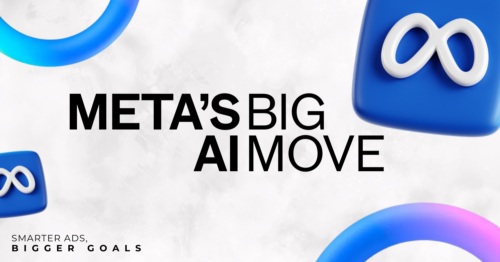Businesses can’t afford to sit on the sidelines when it comes to their online presence. But here’s the million-dollar question:
Do you need a website or a web application (web app)?
At first glance, the terms might seem interchangeable. Both are accessible via browsers, both use the internet, and both are built using similar tools. But the truth is — the difference between a website and a web app can determine how well your business performs online.
If you’re a business owner, startup founder, or marketing head wondering which one suits your needs, this blog is for you. We’re going to unpack the difference, benefits, and how to choose the right option for your business without getting trapped in tech jargon.
Let’s dive in!
A website is a collection of publicly accessible, interlinked pages that share a single domain name. It typically presents static information — like who you are, what you do, and how to contact you.
Think:
- Homepages
- About Us pages
- Blogs
- Service/Product pages
- Contact forms
A website is like your digital brochure — it tells your story, builds credibility, and attracts potential customers.
A web app is a more advanced, interactive software accessed through a web browser. Instead of just displaying content, it allows users to perform specific tasks.
Think:
- Online banking portals
- Booking engines (like MakeMyTrip)
- CRM systems
- Project management tools (like Trello or Asana)
- E-learning platforms
Web apps require authentication, personalization, and user input — making them a powerhouse of engagement and functionality.
Key Differences Between Website & Web App
| Feature | Website | Web App |
| Purpose | Inform, showcase | Interact, process, perform tasks |
| Interaction | Minimal | High |
| Content | Static or occasionally updated | Dynamic and user-driven |
| Login Required | Rarely | Often required |
| Complexity | Low to Medium | Medium to High |
| Development Cost | Lower | Higher |
| Examples | Company site, blog, portfolio | Online store, dashboard, ERP system |
Which One Does Your Business Need?
Let’s break it down by business type and goal:
1. Startups & Small Businesses
- Need to build brand awareness
- Want an online presence
- Low budget
Go for a website with fast-loading pages, service information, contact forms, and social proof.
BUT…
If you’re building a SaaS product or digital service offering, a web app is your core business — and you need one from the start.
2. E-Commerce Businesses
- Need user logins, carts, checkout, and payment integration.
You need a web app — e-commerce is inherently interactive. Shopify, WooCommerce, and Magento are all platforms to build web apps with shopping functionalities.
3. Educational Institutes / EdTech Startups
- Need interactive learning platforms, student profiles, dashboards, progress tracking.
Definitely a web app. Your students need to do things — not just read static content.
4. Bloggers / Influencers / Creatives
- Need to showcase portfolio, content, or work.
A website is your best bet. Add CMS features if you publish frequently.
5. Service Providers (Agencies, Consultants, Doctors, Lawyers)
- Want to display services, testimonials, location, contact info.
Start with a website. Later, if you want appointment booking, chatbots, or user dashboards, you can upgrade with app-like features.
When You Might Need Both
Let’s be real — some businesses need both.
You can have a website for showcasing your brand and SEO, and a web app for actual customer or user interaction.
Example:
A hospital might have:
- A website to showcase doctors, facilities, and contact info.
- A web app for patients to book appointments, view reports, and get updates.
Tech Behind the Scenes
Website
- Built with HTML, CSS, JavaScript
- Often powered by WordPress, Wix, Squarespace
Web App
- Uses backend languages like Node.js, PHP, Python
- Frameworks like React, Angular, Vue.js for the frontend
- Connects to databases like MySQL or MongoDB
The development cost, time, and team structure required for a web app are higher — but the ROI is also greater if interaction is key to your business.
Pros & Cons
Website Pros:
- Lower cost
- Faster to launch
- SEO-friendly
- Easier to maintain
Website Cons:
- Limited interactivity
- Can’t handle complex functions
Web App Pros:
- Highly interactive
- Real-time user engagement
- Better user personalization
- Scalable and powerful
Web App Cons:
- Higher development & maintenance cost
- Requires more backend resources
- Longer build time
Budget Considerations
| Budget Range | Best Option |
| ₹10,000 – ₹50,000 | Website |
| ₹50,000 – ₹5,00,000+ | Web App (simple to advanced) |
Tip: Many businesses start with a website and slowly evolve it into a web app by adding features like login, search, and dashboards.
What Fuerte Developers Recommend
At Fuerte Developers, we help you make smart tech decisions that scale with your business.
- Not sure whether to start with a site or app?
- Want something flexible that grows with you?
- Need speed, performance, and user engagement?
We’ve helped 100+ businesses move from basic websites to robust web apps that save time, make money, and win customer love.
Let’s build the right digital solution for you!
Final Verdict: Website or Web App?
| You Should Choose… | If Your Business Goal Is… |
| Website | Visibility, branding, lead generation |
| Web App | Interaction, user control, dynamic features |
| Both | A mix of marketing + customer operations |
Your choice depends on one thing:
What do you want your users to DO when they land on your domain?
If the answer is just “read or contact us” → website.
If it’s “login, buy, book, create, track” → web app.
Follow Us | Our Services | Contact Us







